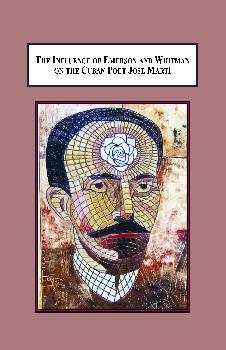Influence of Emerson and Whitman on the Cuban Poet José Martí. Themes of Immigration, Colonialism, and Independence

| Author: | Schwarzmann, Georg | |
| Year: | 2010 | |
| Pages: | 316 | |
| ISBN: | 0-7734-4728-8 978-0-7734-4728-8 | |
| Price: | $219.95 + shipping | |
| (Click the PayPal button to buy) | ||
This study analyzes the impact of Ralph Waldo Emerson and Walt Whitman on José Martí and his search for a political and cultural design for postcolonial Latin America. Martí integrated Emerson’s call for individual self-reliance and for cultural independence from Europe, as well as Whitman’s embrace of liberty and democracy and his poetry and prose reveal the formal and conceptual influence of the two North American writers.
Reviews
“Elements of this study that will surely attract attention and response are the analysis and comments on the work of prominent critics of Martí with whom Schwarzmann takes issue. He contrasts their views with what he finds in his own reading of Martí. The author of this text also argues successfully for seeing Martí in broad terms.” – Prof. Anne Fountain, San José State University
“The examination of the influence of Emerson and Whitman on the thinking and writings of José Martí is not new. However, some critics have viewed Martí’s search for a postcolonial model for Latin America as a political program for a socialist transformation of society. Viewing Martí through the narrow lens of the tenets of socialism denies Martí his rightful place as a visionary and philosopher in the history of the development of Latin America. Professor Schwarzmann’s insightful analysis of the influences that Emerson and Whitman exercised on Martí during his life in the United States restores Martí to his rightful place as a thinker who transcended the boundaries of ideologies and politics to seek social justice and freedom for the oppressed of the world.” – Prof. Kern L. Lunsford, Lynchburg College
“[The author’s] painstaking analysis of the great Cuban’s life and works establish Martí not as an ideologue but as an enlightened patriot intent on finding an appropriate and accessible model for the nascent Spanish American republics.” – Prof. M. Angelica Lopes, University of South Carolina
“The examination of the influence of Emerson and Whitman on the thinking and writings of José Martí is not new. However, some critics have viewed Martí’s search for a postcolonial model for Latin America as a political program for a socialist transformation of society. Viewing Martí through the narrow lens of the tenets of socialism denies Martí his rightful place as a visionary and philosopher in the history of the development of Latin America. Professor Schwarzmann’s insightful analysis of the influences that Emerson and Whitman exercised on Martí during his life in the United States restores Martí to his rightful place as a thinker who transcended the boundaries of ideologies and politics to seek social justice and freedom for the oppressed of the world.” – Prof. Kern L. Lunsford, Lynchburg College
“[The author’s] painstaking analysis of the great Cuban’s life and works establish Martí not as an ideologue but as an enlightened patriot intent on finding an appropriate and accessible model for the nascent Spanish American republics.” – Prof. M. Angelica Lopes, University of South Carolina
Table of Contents
Foreword by Anne Fountain
Acknowledgements
Introduction
1. Martí’s reception of Emerson and Whitman
Concepts and literary influences
Emerson and Whitman as models of cultural and political independence
2. Thinking beyond ideological binaries: Martí's "planetarity" in the context of postcolonial studies
3. Diverging views: Martí, Emerson, and Whitman on social and political issues
Socialism
Native Americans
Immigration
U.S. imperialism
Conclusion
Bibliography
Index
Acknowledgements
Introduction
1. Martí’s reception of Emerson and Whitman
Concepts and literary influences
Emerson and Whitman as models of cultural and political independence
2. Thinking beyond ideological binaries: Martí's "planetarity" in the context of postcolonial studies
3. Diverging views: Martí, Emerson, and Whitman on social and political issues
Socialism
Native Americans
Immigration
U.S. imperialism
Conclusion
Bibliography
Index
